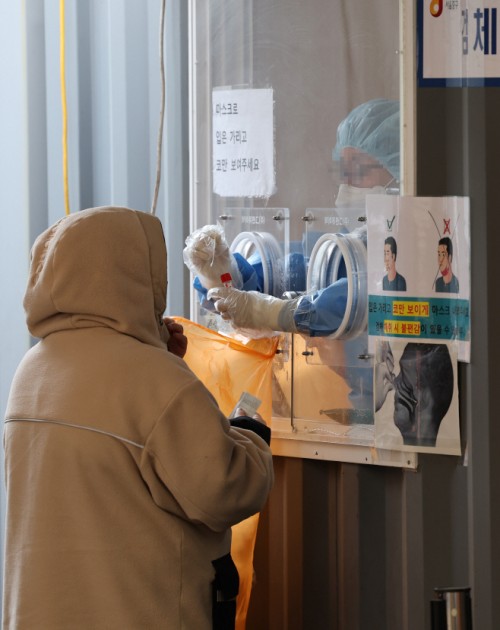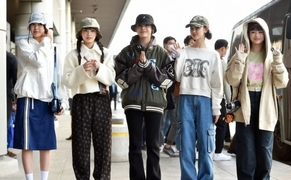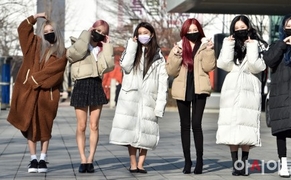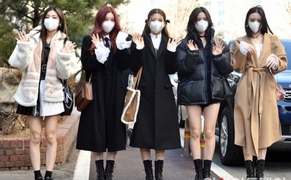 |
| A medical staff member collects specimens from a person for COVID-19 testing at a screening station in Seoul./ Source: Yonhap |
AsiaToday reporter Park Ah-ram
South Korea surpassed the 8-thousad mark, reporting the highest daily COVID-19 tally on Tuesday, driven by the fast spread of the new dominant omicron variant. The government expects the daily number of confirmed cases to reach 30,000 or more next month, and plans to expand the ‘omicron response system’ nationwide after the Lunar New Year holidays.
“The omicron variant will probably account for more than 90% of new infections within two to three weeks,” Sohn Young-rae, a senior health official, said on a radio program on Tuesday. The official said daily numbers could reach 20,000 to 30,000 or more.
The country’s daily coronavirus cases hit a record high of 8,571 on Tuesday, taking the total caseload to 749,979. It marks the first time the daily caseload has surpassed the 8,000 mark since the country reported the first COVID-19 infection on Jan. 20, 2020. The previous all-time high was 7,848 on Dec. 15 last year.
Despite the virus surge, critical cases are significantly lower compared to last month. The number of critically ill COVID-19 patients came to 392, down 26 from the previous day. The death toll from the virus came to 6,588, up 23 from Monday. The fatality rate stood at 0.88%.
Since omicron is spreading more than twice as quickly as the delta, some medical experts warn that infection cases could grow exponentially to as many as 200,000 in March.
“The key will be how we overcome this as moderately and smoothly as possible over the next four weeks,” Sohn said. “The number of people that the medical system can save will vary depending on the number of daily confirmed cases.”
The health authorities decided to trial the new response system in four regions that have seen an alarming spread of the omicron, namely Gwangju, South Jeolla province, and the cities of Pyeongtaek and Anseong in Gyeonggi province, starting Wednesday.
Under the new response system, people in low-risk groups will take rapid antigen tests, and polymerase chain reaction (PCR) tests will be carried out mainly on high-risk patients.
The measures will be applied nationwide after the Lunar New Year holidays, according to the health authorities.
#omicron #COVID-19 #record high
Copyright by Asiatoday
Most Read
-
1
-
2
-
3
-
4
-
5
-
6
-
7





















